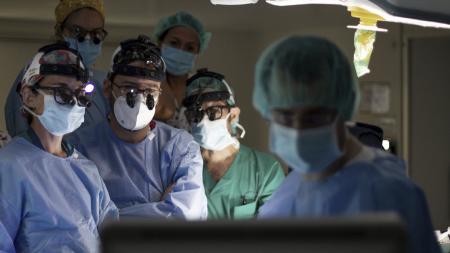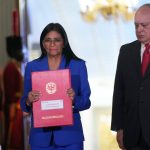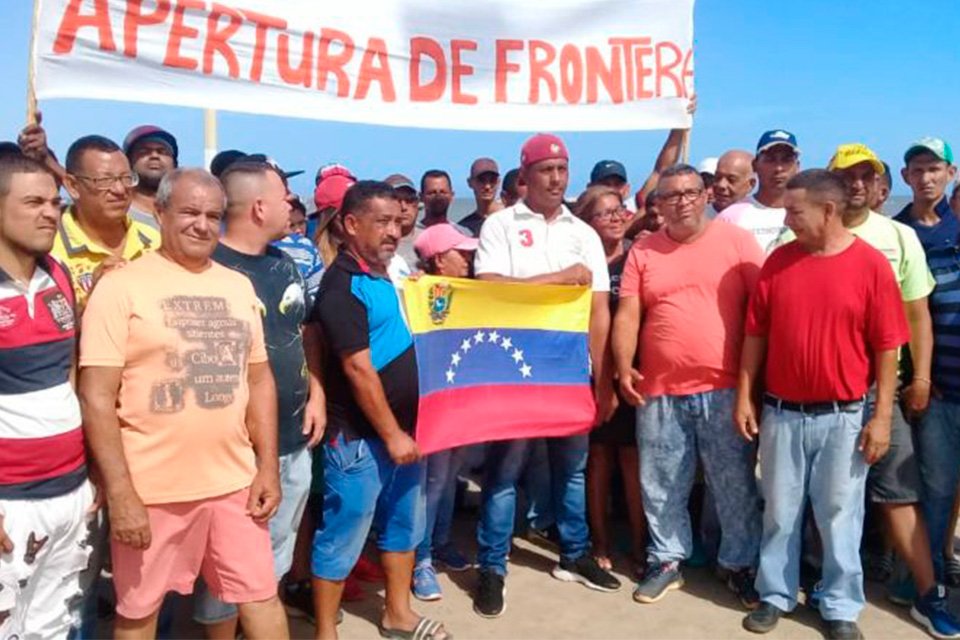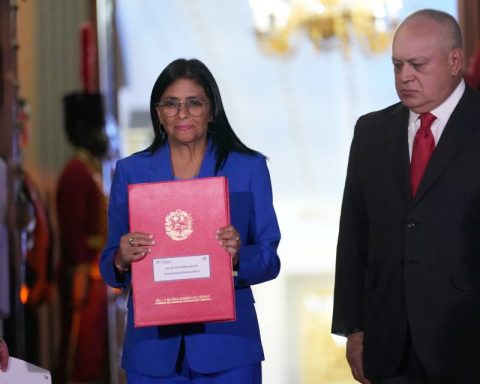An Argentine investigation allowed the first intestine transplant from a donor in asystole to be carried out in a hospital in Madrid, that is, with cardiocirculatory death, which enabled the possibility of performing this type of procedure with this organ, which was already done with a kidney, heart and lung.
“Historically, donors for intestinal transplants are people who have been declared brain dead, but as their hearts continue to beat, the organs continue to receive a blood supply; what is new about this case is that it is the first time that this solid organ came from from a donor in asystole, that is, with cardiac death”, the veterinarian and CONICET researcher Pablo Stringa explained to Télam.
The intervention, which was carried out by the pediatric surgery team at Hospital La Paz in Madrid, allowed Emma, a 13-month-old baby, to receive intestine grafts from a donor with cardiocirculatory death.
The procedure -which had to receive authorization from the National Transplant Organization (ONT) of Spain- was made possible thanks to research previously carried out by Stringa together with his team at the Institute of Immunological and Pathophysiological Studies (IIFP, Conicet-UNLP) and of the Transplant Laboratory of the Faculty of Medical Sciences of the National University of La Plata (UNLP).

“what we What we generated was scientific evidence through studies carried out in experimental models that the grafts obtained from donors in asystole were viable and had good long-term results.; That was the research on which the La Paz hospital team relied to perform this procedure,” Stringa described.
The specialist explained that what is called “asystole donation” is already being carried out “for other types of transplants such as kidney, heart, liver or lung, but until now there was no evidence for intestinal transplantation”.
Stringa explained that the fact that it was not done with intestines “was poorly supported by experimental work showing that the intestine was very sensitive to ischemic damage (lack of blood flow as a result of cardiocirculatory arrest) and therefore not useful for transplantation.” with donation in asystole”.

“However – he remarked – our group of researchers from Conicet, in close collaboration with doctors and researchers from Hospital La Paz, showed that this is not the case.”
The history of this collaboration dates back to 2011, when Stringa read a scientific article published by pediatric surgeon Hernández Oliveros and wrote him an email telling him that he was interested in learning intestinal transplant surgical techniques for experimental studies.
“He answered me within a few hours and told me that he would gladly wait for me in Madrid whenever I wanted. That same year we met at the International Congress on Intestinal Transplantation in Washington, United States, and since then a close collaboration began that continues to this day, and that includes long work stays in Madrid to advance our lines of investigation,” Stringa described in a statement released by Conicet.
The project that led to this milestone in transplantation lasted three years, was financed by the Mutua Madrileña Foundation and supported by the Spanish Association for Aid to Children, Adults and Families Affected by Intestinal Failure, Multivisceral Transplantation and Parenteral Nutrition (NUPA).
In dialogue with Télam, the researcher recalled that “a problem that occurs worldwide is the imbalance between the number of people who need a transplant, and the number of donors.”
In dialogue with Télam, the researcher recalled that “a problem that occurs worldwide is the imbalance between the number of people who need a transplant, and the number of donors.”
And he continued: “The objective of these strategies, which in this case was to use a type of donor that had never been used for intestinal transplantation, is to increase the number of donors to match this imbalance.”

“You have to think that the less time a person spends on the waiting list to receive an organ, the greater the chances of success”he stressed.
Emma had a condition known as intestinal failure, characterized by the inability to absorb nutrients necessary to maintain vital functions and growth.
“This made her dependent on intravenous (parenteral) nutrition from the neonatal period, and caused liver damage, which is why she was finally listed as a multivisceral transplant recipient. The time on the list for these patients is very long. , close to a year, and a third of them die without having had the opportunity to receive a transplant”, described the Spanish doctor Hernández Oliveros, part of the team that performed the operation.
And he continued: “For this reason, seeing her evolve well from our pioneering surgery fills us with satisfaction, for the result with Emma and for the possibility that it offers for other patients in the future.”
In this context, Stringa told Télam that After Emma’s case, the hospital performed two more intestine transplants from a donor with cardiocirculatory death, and all procedures were successful..
“In Argentina, donation is beginning in asystole, but not in the intestine but in kidney transplants,” he explained.
“These contributions, made from the laboratories and experimental operating rooms, encourage our desire to continue working to generate more useful contributions for world medicine and that of our country,” he highlighted.
“In Argentina, donation in asystole is beginning, but not in the intestine but in kidney transplants”Paul Stringa
Finally, he highlighted the support and commitment throughout the project of its director, Martín Rumbo, and his colleagues, Leandro Vecchio Dezillo, Agustina Errea, Rodrigo Papa Gobbi, Ivana Ivanoff Marinoff, from the IIFP; and Natalia Lausada and Claudio Ledesma, from the Organ Transplant Laboratory of the Faculty of Medical Sciences of the UNLP.


















